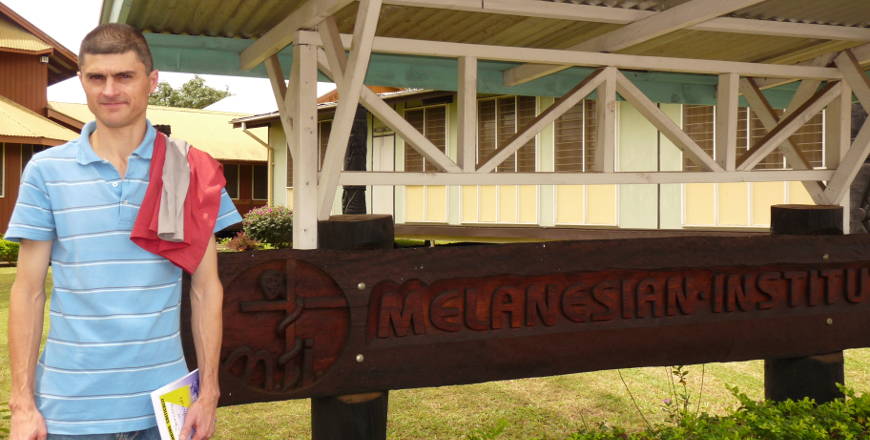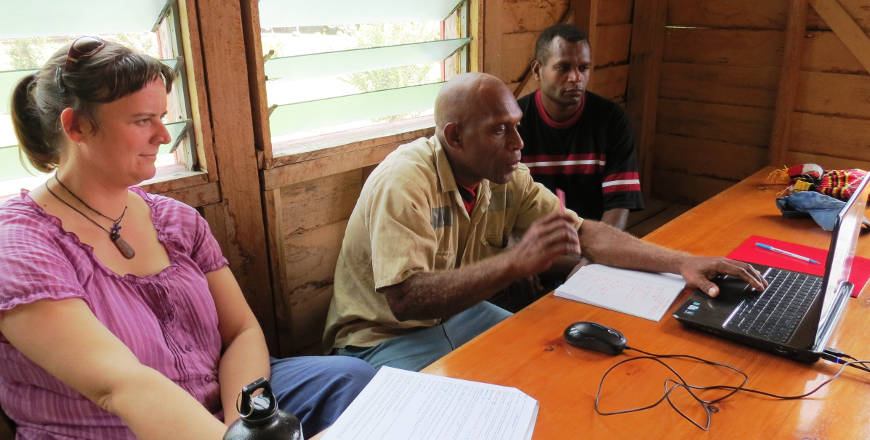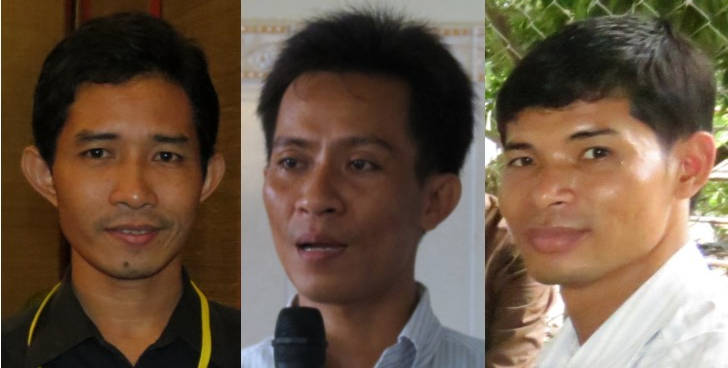Research sheds light on dark practices
Sorcery and witchcraft, while relegated to the past for most of the Western world, are most definitely in the here and now for Melanesian cultures like our near neighbour, Papua New Guinea (PNG).
This year there have been some shocking reports from PNG of ‘witch killings’. The victims are accused of using dark powers to kill someone in their community, then ‘arrested and executed’ by their neighbours. In February 2013, a brutal murder saw a young PNG mother of two, accused of sorcery and burned alive in broad daylight. This act was witnessed by a mob of people, who impeded a fire truck and police from rescuing her.
Due to the openness of this public execution and the availability of technology, the world digested instant pictures of this horrific crime. But this was not the first, nor the last. In fact there have been many tortures and deaths, and not just in the remote highlands of PNG either, but also in the towns and coastal areas too.
Papua New Guineans get upset when people who are important to them die – just as we do. But when there is some reason to view a death as suspicious, they try to find out who was responsible, sometimes using questionable methods like divination and necromancy.
Belief in spirits and dark powers is still strong in PNG. Killing ‘witches’ is widely seen as right and prudent. But nowadays beliefs aren’t exactly ‘traditional’. The horror films now frequently shown in rural villages – downloaded from the internet by relatives in town – have introduced all sorts of mixed-up ideas about vampires and so on.
Some, who’ve been accused of witchcraft, have been tortured and their bodies found in toilet pits, caves, deep holes or burned alive in their homes. PNG is struggling to find ways to put an end to witch-killing. In May PNG’s parliament abolished the Sorcery Act, a law that governed the handling of cases involving black magic. Many people welcomed the move, saying that in recent times the law has protected torturers and murderers who cynically appeal to custom if they are caught.
In June, a conference on ‘Sorcery and witchcraft-related killings in Melanesia’ will be held at the Australian National University (ANU) in Canberra, with the aim to produce practical solutions to the problems caused by the belief in sorcery in the region.
The cast of speakers includes academics from many fields including law, anthropology and human rights, as well as policy-makers, Pacific Island organisations, church organisations and gender rights activists.
Pastor Jack Urame from the Melanesian Institute of Pastoral and Socio-Cultural Service in Goroka in PNG’s Eastern Highlands and Nick Schwarz, from the Lutheran Church of Australia who is a researcher at the Melanesian Institute will participate. Nick will be speaking at the ANU about the arguments for and against Papua New Guinea’s 42 year-old Sorcery Act.
‘PNG is a fragile state of small fragmented political units who, understandably, go into survival mode, when things get tough.
‘If the people don’t see a strong police force, justice system or government, they take the law into their own hands and work according to their traditional beliefs’, said Nick.
PNG is a predominantly Christian country, but many people are able to balance out their Christian faith with their belief in sorcery and witchcraft.
In 1971 the PNG government passed the Sorcery Act which, ironically, was thought would stop people from taking the law into their own hands. Its purpose was to help guide the police, and the justice system, when handling claims of sorcery and intentional evil visited upon another person.
It was not envisioned that the Sorcery Act itself, would empower the existence of sorcery; and paradoxically, those who wish to use the Act falsely, to accuse someone else of using sorcery.
‘It’s mostly women who are the scapegoats, but men are also targeted. They are accused of causing bad events by evil witchcraft and are tortured brutality and mercilessly killed. This happens frequently’, said Nick.
On Tuesday the 28th of May, PNG parliamentarians repealed the Sorcery Act. This is a step forward, but, in a country considered a fragile, there are many more steps to come; the next, hopefully, being a change in societal behaviour.
‘Many people have mixed feelings about the torturing and killing, finding it distasteful. But, because they genuinely believe that ‘untimely deaths’ of prominent (or promising) people are suspicious, and sudden or traumatic deaths are also suspicious, they agree with the killings on the principle that it is better to be safe than sorry’, he said.
It is hoped that the shared information, from the ANU conference, will fuel a domestic conference of the same nature in PNG in November to bring together influential people working in health, education, law enforcement, community development, churches and human rights organisations. Please join us in prayer for our neighbours in PNG, and for the churches and society as a whole, to help make positive changes to this terrible situation.
This story was also published in the July 2013 edition of Border Crossings, the magazine of LCA International Mission.
Many of our partner churches are working in new territory for the kingdom of God; therefore, spiritual attack is their everyday reality. As a member of a congregation, school, or family, or a couple or individual, you are invited to commit to praying for our partners in mission. For regular prayer point updates, go to www.lca.org.au/international-mission/act-now/pray
Read more stories about our partner church in Papua New Guinea at http://www.lcamission.org.au/category/stories/international-partners/papua-new-guinea/




